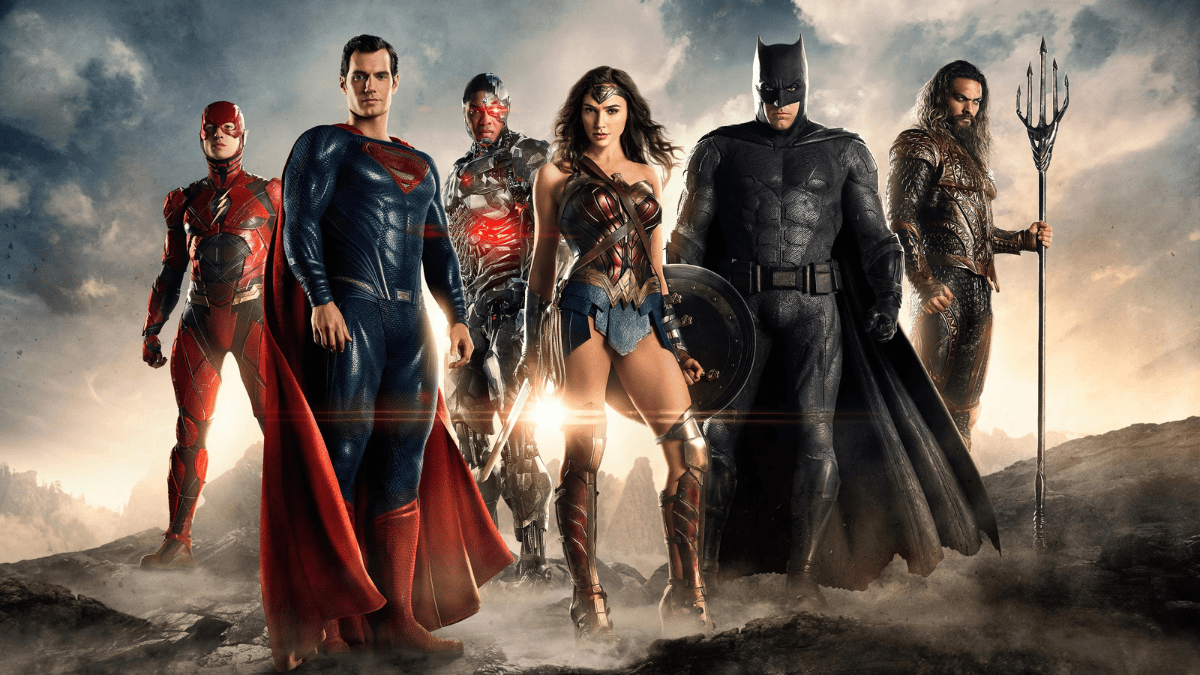Things haven’t exactly gone smoothly for the DC Extended Universe. Following up Christopher Nolan’s Dark Knight trilogy would be a tough act for any series, but the DCEU also had to play catch-up to the Marvel Cinematic Universe, which had already secured box-office success and widespread critical acclaim when Zack Snyder’s Man of Steel hit theaters in 2013.
From the jump, audiences were split down the middle. This new universe didn’t lend itself to the witty, adventurous romps that defined Marvel. Here was something darker, more morally ambiguous, and yes, sometimes just plain worse than the offerings of the comics studio across town. But even when Warner Bros. pulled away from Snyder’s master plan and went through a series of leadership changes, DCEU films still were largely defined by the visions of their directors, rather than the house style their competitors often stuck with.
In honor of the release of Andy Muschietti’s The Flash, here is an updated ranking of the live-action, mainline DCEU films, from worst to best.
15. Suicide Squad (2016)
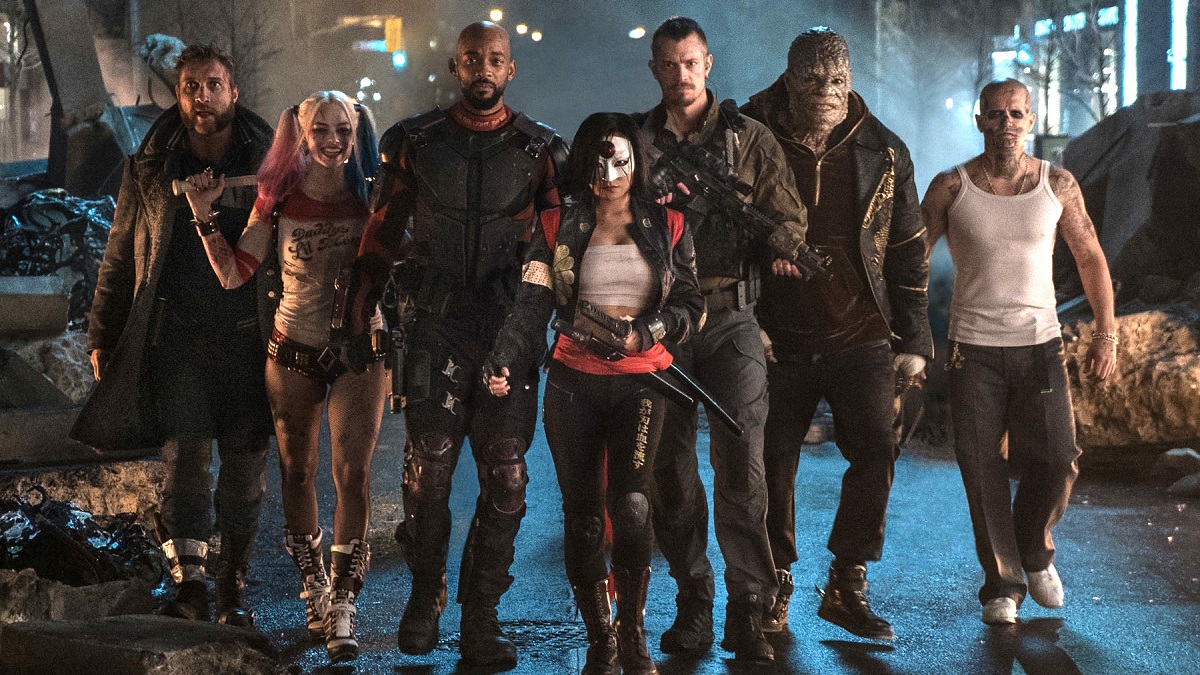
David Ayer’s Suicide Squad is a pretty dismal experience, though it may not be the writer/director’s fault. The film had a notoriously difficult post-production: Where Ayer’s preferred cut had a more militaristic tone and no music besides the original score, Warner Bros. executives worked on a different cut with the company that made the film’s teaser, shifting events around and using numerous needle drops to liven up the proceedings. Finally, Warner Bros. ordered reshoots to find a common ground between the two versions, though the finished product plays an awful lot like one long trailer. We know who to blame for that.
The final cut wants to be Guardians of the Galaxy so bad, but its erratic presentation and refusal to dig into its characters’ traumas in meaningful ways creates an odor of posturing. Margot Robbie’s Harley Quinn is a bright spot, but Will Smith’s Deadshot is a tired one-liner machine. Killer Croc is flat-out embarrassing, and Enchantress is laughable as the film’s villain, exhibiting half-assed dance moves like a bargain basement Queen of the Damned every time she has dialogue. And what can be said about Jared Leto’s Joker performance that hasn’t already been said about the war in Sudan? This Suicide Squad isn’t a team; it’s a random assembly. And Suicide Squad isn’t a movie; it’s a commercial for one we’ll never get to see.
14. Justice League (2017)
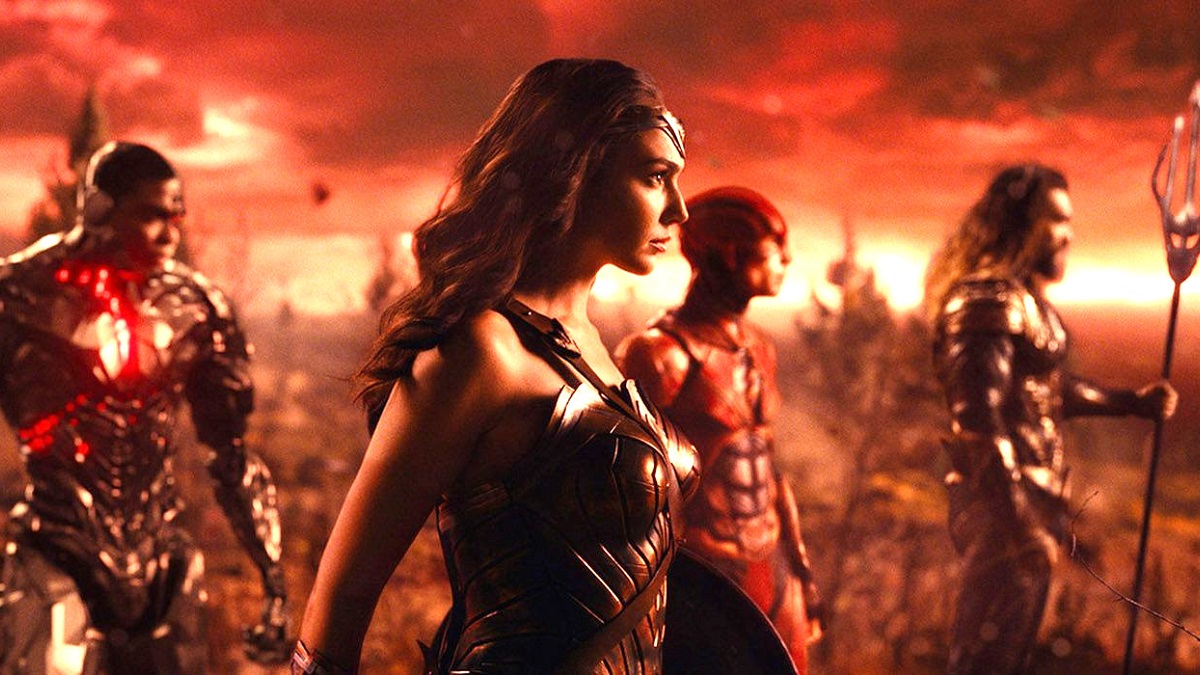
Another case of Warner Bros. meddling with a movie to the point of folly, director Zack Snyder left the post-production of Justice League after a family tragedy, and the suits seized the opportunity to cut the guts out of his movie and replace them with quips. Snyder still carries a directing credit, but it’s really a hybrid of his material and new content written and shot by Avengers alumnus Joss Whedon. Unfortunately, you probably couldn’t find two filmmakers with more opposing viewpoints in the superhero genre.
As we would later see in Zach Snyder’s Justice League (an extended cut comprising Snyder’s original vision), the filmmaker was originally going for an epic fantasy adventure more along the lines of Lord of the Rings than Captain America. Snyder is interested in heroes as tortured gods struggling to find peace among the people who hate and fear them. He shoots them that way, too. Whedon, on the other hand, is all about verve and banter, so it’s especially confusing when the film pivots from frames worshipping its protagonists’ muscled forms to Ezra Miller talking about brunch. Still, out of the two films in the DCEU with a severe identity crisis, we’ll take this one over Suicide Squad because it’s less of an assault on the audience.
13. Wonder Woman 1984 (2020)
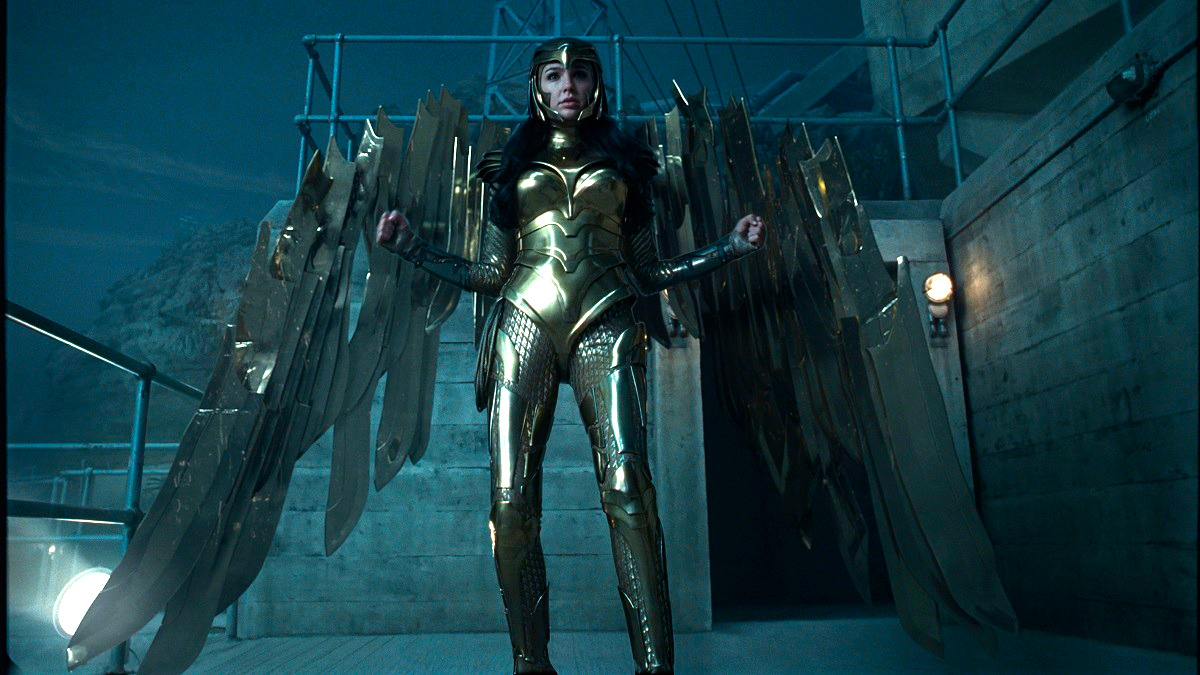
Patty Jenkins’ Wonder Woman 1984 is baffling. Visually, it’s a sumptuous evolution of Jenkins’ clear-eyed style. And the green-screen thrills and earnest sentiment recall the halcyon days of Christopher Reeve in a cape. However, on a storytelling level, there are too many obviously terrible decisions for this not to be some kind of high-budget prank. The plot is extremely problematic, with Wonder Woman laying out innocent, brainwashed Middle Eastern stereotypes and engaging in sex with her old flame Steve as he occupies the body of a brainwashed man who’s unable to consent.
Meanwhile, Kristin Wiig’s Cheetah is Selena Kyle done wrong, culminating in the worst CG creature this side of the Scorpion King. Above all, the narrative just doesn’t need to happen: Diana learns a lesson as a girl in the film’s prologue, and the movie strains over two and a half hours just so she can readopt something she already knows. In a way, the film’s application of monkey’s paw mythology to real-world suffering is more offensive than anything in Justice League or Suicide Squad, but at least the movie is this stupid on purpose.
12. Shazam! Fury of the Gods (2023)
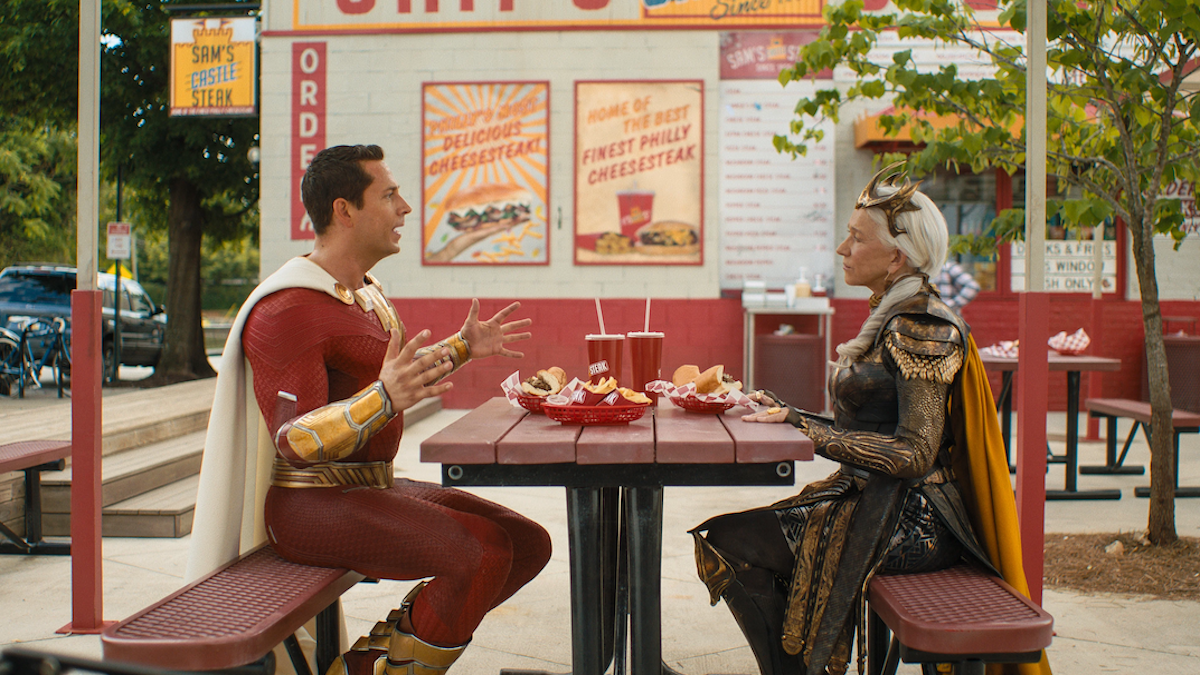
David F. Sandberg’s Shazam! sequel is about as rote as superhero films get. Freed from the pressure of telling an origin story, the narrative explores Billy Batson’s need to hold onto his superhero foster family at all costs, despite that they’re all growing up and want to do different things with their lives. It’s a fine approach, but the execution boasts tired banter, lackluster action, and lame villains. This results in a film that positively crawls through its runtime — an especially dire proposition given that the climax starts a full 50 minutes before the credits roll.
Perhaps most confusing is the sidelining of Asher Angel, the actor playing young Billy who anchored the first film but is barely in the sequel. Instead, Sandberg relies on the grating presence of Zachary Levi, who was passable in the first Shazam! because his enthusiasm aligned with that entry’s wish-fulfillment premise. Here, he just seems coked out — and acts nothing like his younger counterpart.
Plus, while Rachel Anne Zegler gives a solid turn as a conflicted antagonist, Helen Mirren is on autopilot and Lucy Liu gives maybe her worst performance ever. Throw in a Wonder Woman cameo that’s laughable for failing to convince that Gal Gadot ever shared the same space as the rest of the cast, and you have the kind of product people point to when they say “superhero fatigue.”
11. Black Adam (2022)
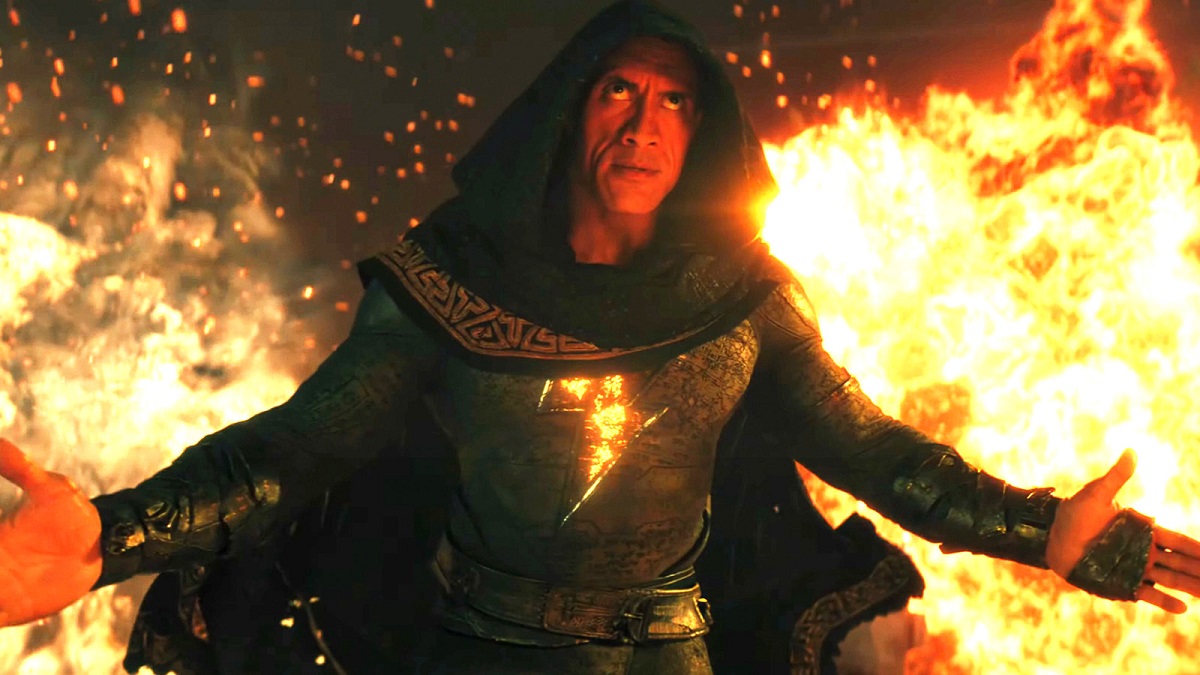
Dwayne Johnson was attached to play supervillain Black Adam all the way back in 2014, but the standalone film we got nearly 10 years later doesn’t exactly suggest the interim was well spent. Black Adam focuses on Teth-Adam, an ancient superbeing who is freed from magical imprisonment by a group of archeologists who want him to liberate the fictional nation of Kahndaq from a high-tech crime syndicate.
That’s already a lot of plot for one movie, but for some reason Warner Bros. and Johnson were comfortable also introducing the Justice Society, a sort of Justice League B-team with their own powers, personalities, and interpersonal conflicts. There’s not nearly enough room here to properly develop any of these characters, so viewers are kept at arm’s length from the emotional revelations and are mostly forced to sit back and endure, sigh, sky fighting.
Johnson himself is fine but unremarkable as the robotic Teth-Adam, but at least his pairing with teenage superhero expert Amon (Bodhi Sabongui) offers a little nostalgia for the days when little John Conner taught the T-800 how to say one-liners when he does something cool. The overall endeavor at least approximates fun, but it has too many moving pieces for anything to stick. And Non-Stop director Jaume Collet-Serra has chosen one of the ugliest filters of all time to show off the anonymous theatrics.
10. Batman v. Superman: Dawn of Justice – Ultimate Edition (2016)
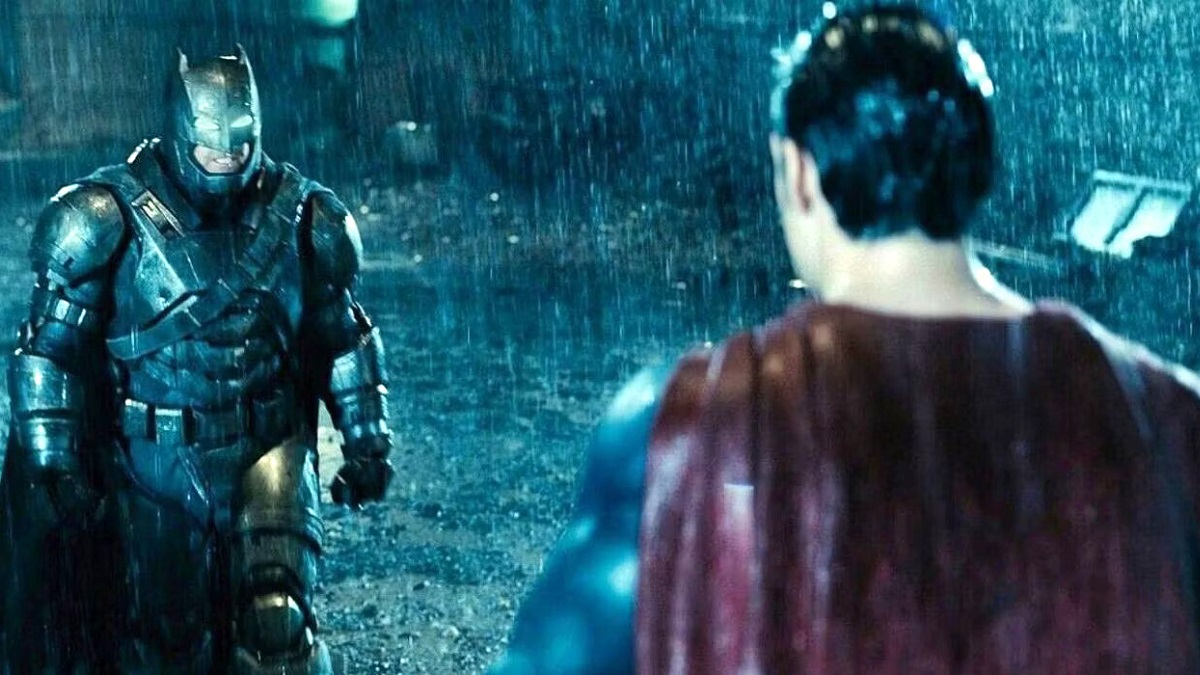
Although the theatrical cut of Zack Snyder’s Batman V Superman belongs a bit lower on this list, we’re happy to report that the longer Ultimate Edition fixes, well, some of the problems that plagued the film upon its original release. The biggest improvements are that Lois actually has something to do in this cut, and Clark actually has a reason to hate Batman. Unfortunately, we still don’t buy the two superheroes fighting each other. The notion that Supes goes to Batman with peaceful intentions but doesn’t manage to voice them because Batman swats him a few times is downright stupid. For a lot of the Ultimate Cut, the characters really are in legitimate conflict. But in the end, they fight and reconcile over…wordage?
But if you can get behind Snyder’s viewfinder and appreciate the vision, there are pleasures to be found: the breathtaking warehouse fight, the Washington DC conspiracy-movie subplot, even the dynamo score that tells twin stories with percussion for Bats and choirs for Superman. It’s flat-out insanely written (“diamond absolutes”?), but the movie holds itself heroically in steady sad-bastardness for a time — before collapsing into an unforgivable mishandling of basic conflict and seven layers of muddy destruction. Hey, they went for it.
9. Shazam! (2019)
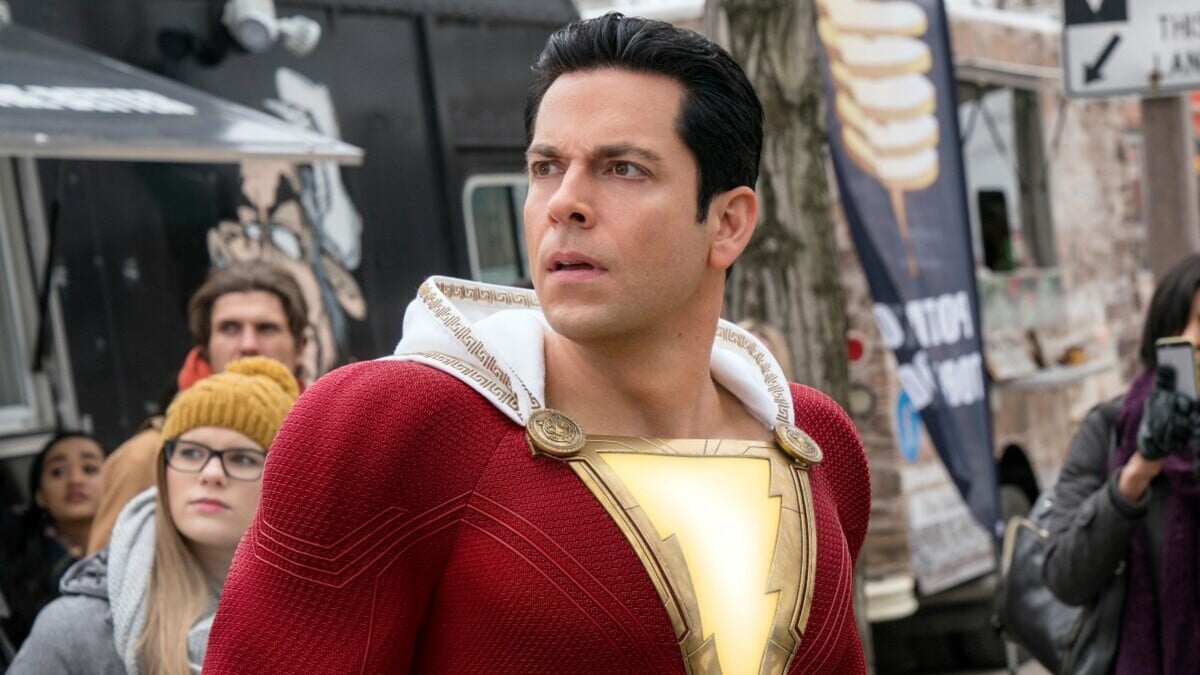
The original Shazam! fares better than its sequel primarily because of its limited ambition: A distant cousin to Penny Marshall’s Big, the movie seeks to capture the thrill of a kid who suddenly has the body necessary to navigate the adult world around him — but as a superhero. The film is at its best when Billy is discovering his power set with wide-eyed wonderment or confidently striding into a gas station to buy beer for the first time. The gleeful energy is a blast of fresh air in an extended universe where most characters treat being a superhero as a colossal bummer.
Unfortunately, Mark Strong’s villain is indistinguishable from all the others in these kinds of movies, the action sequences are nothing to write home about, and the trite mythology is much less interesting than the goofy hijinks. There’s a sequence where the villain unleashes a set of monsters in a board room that recalls David F. Sandberg’s much better work in horror (namely, Lights Out and Annabelle: Creation) and made us wish the director had fellow scare-monger Sam Raimi’s knack for cheesy spectacle. But at least Shazam! knows why we’re all here: It’s to make a villain deliver a boring monologue that the hero, soaring between buildings, must confess he totally can’t hear amid all this flying.
8. Man of Steel (2013)
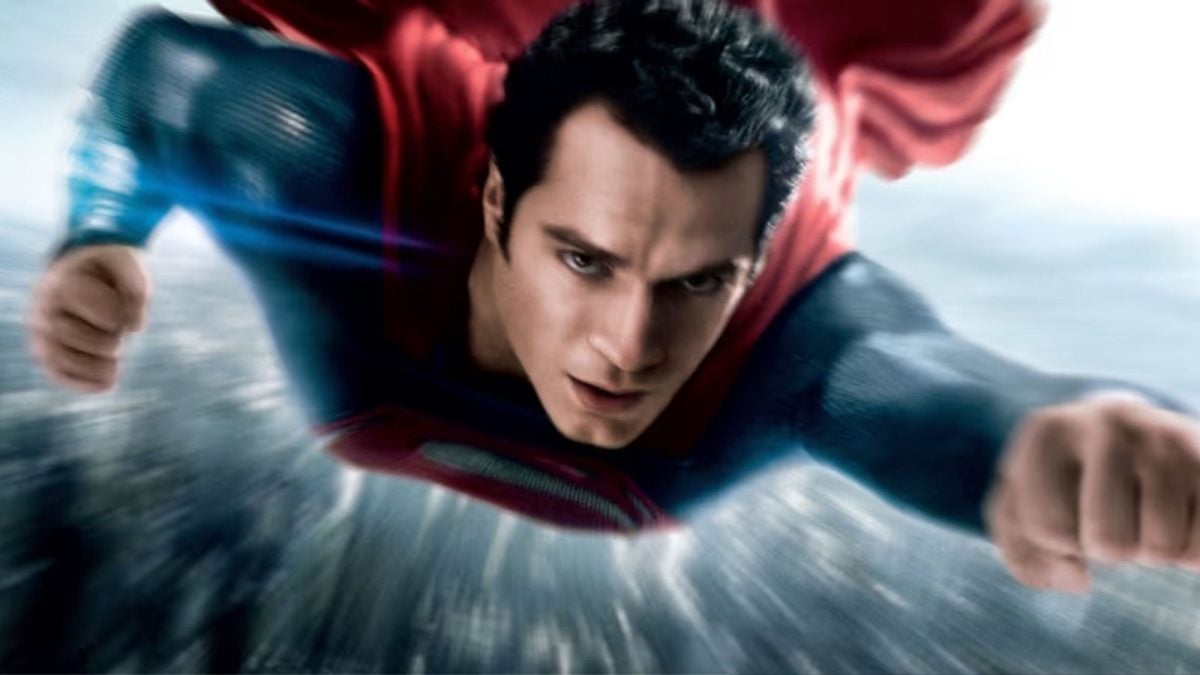
The film that jumpstarted the DCEU has aged better than we expected in some ways, but not all. In hindsight, we’re more accommodating to Man of Steel’s take on Superman as an emo alien desperate to find where he fits in a strange world. Telling Kal-El’s origin as a first-contact narrative feels inspired at times, such as when Michael Shannon’s General Zod commandeers every TV in the world to introduce himself or when Superman and Zod’s troops destroy a small town in about one minute while trying to subdue each other. Henry Cavil is quite good as this version of Superman, and he carries the arc with aplomb. Also, Snyder’s technical merit shouldn’t be overlooked, employing gorgeous handheld flashbacks to Clark’s childhood as well as tableaus of gods in conflict high above the ground.
That makes it all the more disappointing that the action frequently looks silly in a movie this serious, that Jonathan Kent’s sacrifice is unintentionally comical, and that Superman and Lois’ first kiss happens among thousands of dead civilians. Most annoying is the codex nonsense, which makes the narrative a lot more cumbersome than it needs to be.
Zod can simply follow Superman as promised, then realize Earth’s atmosphere is suitable for a new Krypton. There’s his motivation to declare lordship and have his troops start breeding. Superman doesn’t need to have the genetics of all Kryptonians grafted onto his DNA, or whatever. All this guff, plus the unending flying and punching over the last 45 minutes, turn what should be an easily enjoyable story into an overblown, embattled hillside for Snyder apologists to die on.
7. Blue Beetle (2023)
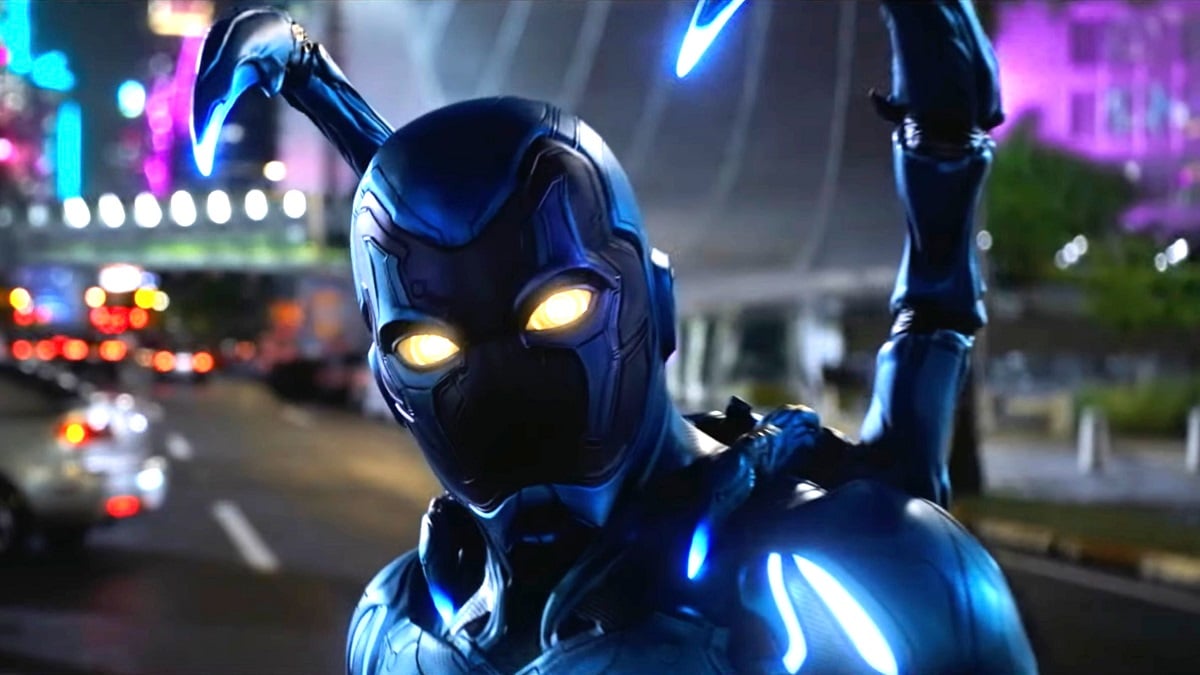
Blue Beetle is a straight-down-the-middle superhero flick that manages to create a distinct personality through the family at its center, but otherwise offers a ho-hum origin story we’ve seen countless times before. Director Angel Manuel Soto has a good enough feel for pyrotechnics and mayhem, but it’s only when his camera settles down to focus on the Reyes family that the endeavor feels like anything more than Iron Man with a blue-collar perspective.
Xolo Maridueña plays hero Jaime Reyes, a hard worker with a heart of gold who’s chosen by a symbiote called the Scarab to receive superhuman abilities. Belisso Escobedo, George Lopez, Bruna Marquezine, Adriana Barraza, Damián Alcázar, and Raoul Max Trujillo make up the rest of the family — and although their platitudes about togetherness feel pat at times, they operate at a level of feel-good mania that’s as idiosyncratic as anything under the DC banner in the past 10 years.
But apart from the personality afforded by its Mexican-American protagonists, the film is resoundingly less creative than anything higher on our list. As soon as you meet Jaime’s family, you know exactly which one of them is going to die at the end of Act 2 to propel his journey as a hero. As soon as a competitive mech suit is introduced, you can count the minutes until it and the Blue Beetle are engaged in tedious sky-fighting. You can even predict the exact line that a comic relief baddie played by Javier Guillén will deliver when he finally claps back at his boss (and Blue Beetle’s arch-villain) Victoria Kord, who keeps getting his name wrong because she’s racist in a way the movie doesn’t need to underline but does so anyway.
Susan Sarandon portrays Kord with a fiendish sense of fun, but it doesn’t help the character break out of the “origin story villain” mold where viewers can’t wait until she’s out of the way so we can get to a really saucy antagonist. That’s emblematic of what’s wrong with Blue Beetle overall: Everything is calibrated fine, but there’s no revolution in the storytelling. It’s a few scenes of standard family dramatics elevated by a game cast, then some digital noise and loud music until the latest whiz-bang sequence is finished. We’d like to see Maridueña return in another chapter, but he needs a reason to fly beyond saving his family — a clumsy double-beat of pathos since he starts the narrative trying to do that anyway. Blue Beetle 2 needs a dark night of the soul to chase this very familiar arc of “guy who gets better at action.”
6. Birds of Prey (and the Fantabulous Emancipation of One Harley Quinn) (2020)

Birds of Prey (and the Fantabulous Emancipation of One Harley Quinn) is ostensibly a character piece about Harley reeling from a breakup with the Joker and rediscovering her own identity. But actually, it’s about a woman trying to eat a delicious breakfast sandwich before the credits roll, suggesting how uninterested the filmmakers are in the doldrums of superheroics. Thus, the actual Birds of Prey team (comprising Huntress, Black Canary, Cassandra Cain, and Detective Renee Montoya) takes a backseat to the former Dr. Quinzel.
Yet, the film still works as an origin story for the team, giving each a distinct personality and reason to seek justice outside the law. The movie does struggle to balance all its characters throughout its runtime, and the non-linear structure paired with Harley’s extraneous V.O. feels like a direct copy of what Deadpool already cornered the market on. But DCEU fans love critiquing this movie beyond those flaws, and we’d like to stand in the film’s defense.
Frequent complaints are as follows: Dumb Maguffin? It’s literally up the butt of a character we care about. Liberal changes to the villainous Black Mask? To be clear: Ewan McGregor’s Black Mask and Chris Messina’s Victor Zsasz are the best villain-henchman combo in this entire shared universe, and they’re perfectly suited male antagonists for a girl-gang movie.
Finally, Birds of Prey’s often-criticized girl-power message feels a lot more organic here than when Marvel so obviously panders. Written by Christina Hodson (The Flash) and directed by Cathy Yan (Succession), the movie allows its female characters to be messy, to be wrong, and to even go grocery shopping without the plot dictating a giant setpiece in Aisle 5. The movie, like Harley, doesn’t pander — it only hits you over the head when it wants to crack your skull.
5. The Flash (2023)
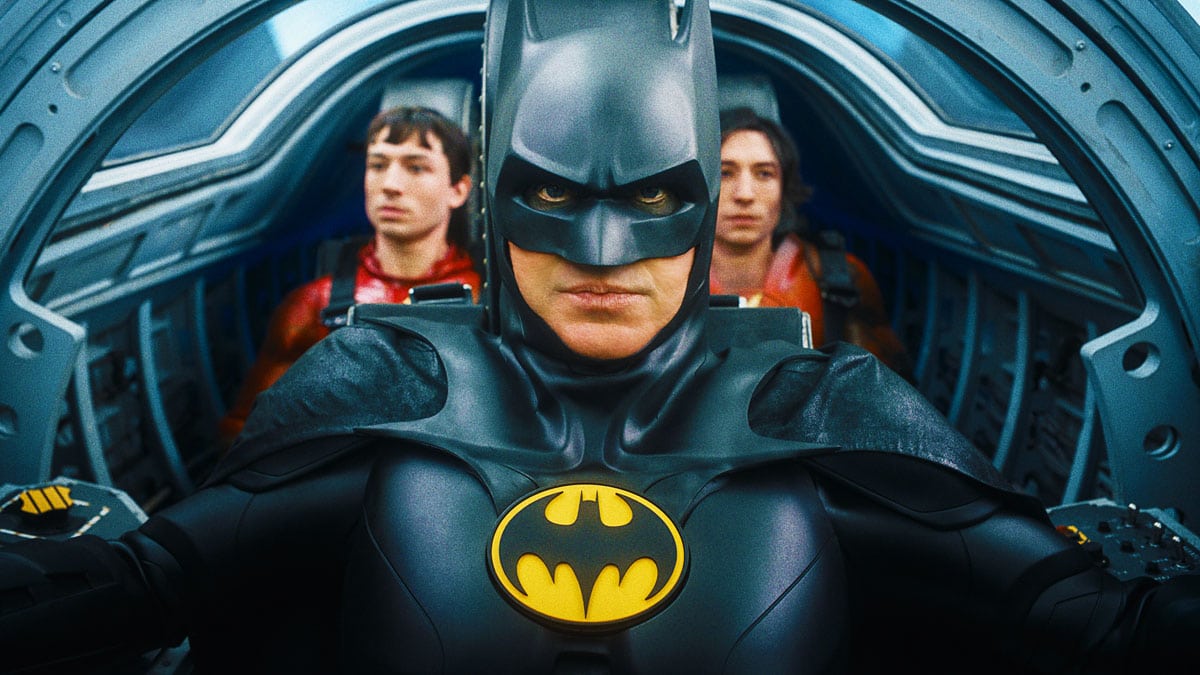
The Flash is the work of a madman. Andy Muschietti has a history of making especially bombastic horror films (Mama and the IT movies), but his full-tilt energy didn’t always serve those stories’ best interests. In The Flash, he finds the perfect vehicle for his breakneck camera and concert-pit sound design. It’s sort of unbelievable how he never stops surprising the audience visually — and yes, that includes the PS3 graphics in his time warps.
The movie throws so many bonkers visuals at you that it settles into a half-animated, half-live-action acid trip where people won’t stop yelling and Michael Keaton’s Batman is a much better combatant at 60 than he ever was at 30. Sasha Calle is on fire as Supergirl, the most aerodynamic Kryptonian of all time. Ezra Miller, controversies acknowledged, succeeds unquestionably at providing the film an emotional core that keeps Muschietti from flying into outer space.
Unfortunately, all this is in service of a pretty standard “be careful what you wish for” narrative. The script by Birds of Prey scribe Christina Hodson is sometimes pretty good on a scene level, but the story it tells is frustratingly predictable. Plus, some of its characters feel woefully shortchanged, and the movie would benefit from a more immediate antagonist for much of the runtime. These flaws hold it back from greatness, but Muschietti is going to wreck and total your senses anyway. We haven’t seen driving like that since Speed Racer.
4. Aquaman (2018)
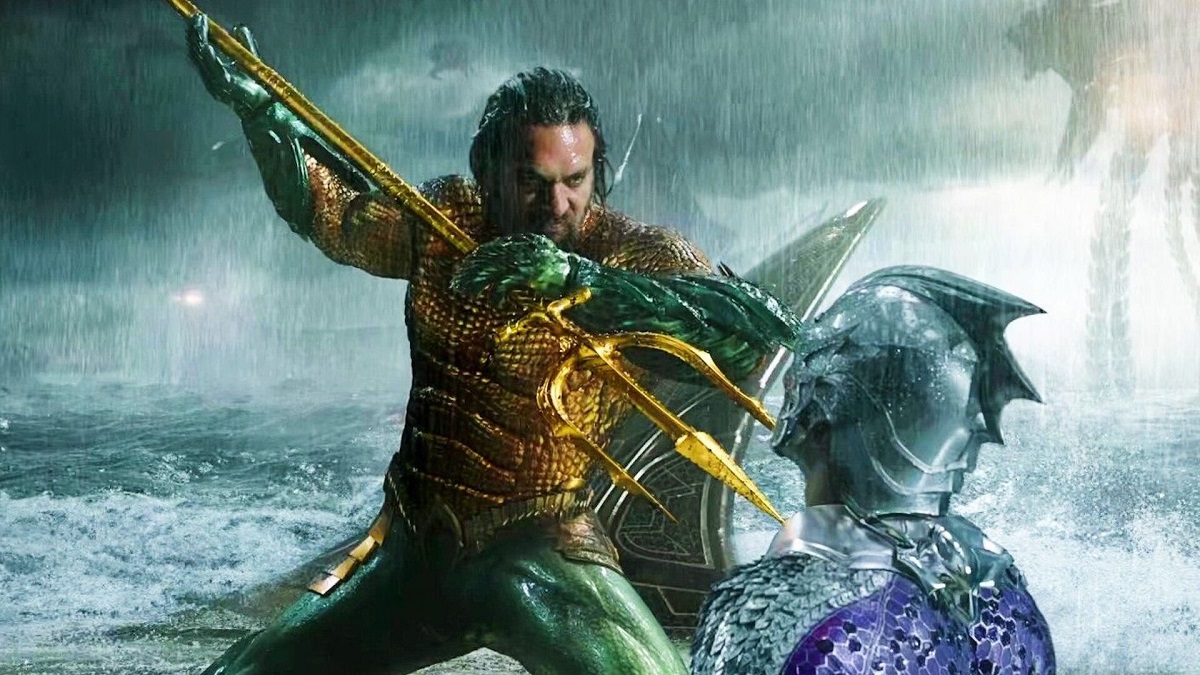
Here’s the thing about Aquaman: The only thing wrong with it is the dialogue. Every time a character speaks, viewers are bound to wonder why the line didn’t go through two or three more rewrites. This is a common problem in films directed by James Wan (Malignant is a recent offender), so let’s just chalk it up to his tin ear for banter and exposition. And still, Aquaman is one of the most gorgeous action films in recent memory, with showstopping wide-angle setpieces and a real sense of beauty and play in the world-building. It’s all executed with utter sincerity, which is what makes it so fun. Wan wants you to tear up when Aquaman finally sees his mother after a lifetime of thinking she’s dead, but he also wants you to say aloud, “Woah — are those dinosaurs?!”
Every action scene in this movie is one of DC’s best. The opening where Queen Atlanna destroys a living room while taking out baddies in a faux one-shot sets the stage. Then we’re treated to a brutal close-quarters fight inside a submarine, a battle-royale in an underwater stadium, a terrific foot chase through Sicily that’s a masterclass in handling geography in action, a beautiful monster attack atop an underwater trench, and finally a climax that proudly shows off sharks with laser beams years after Mike Myers convinced us that it’s actually a pretty sick idea. Here is sizzling, cheesy mayhem served with a side of giant calamari.
3. Zack Snyder’s Justice League (2021)
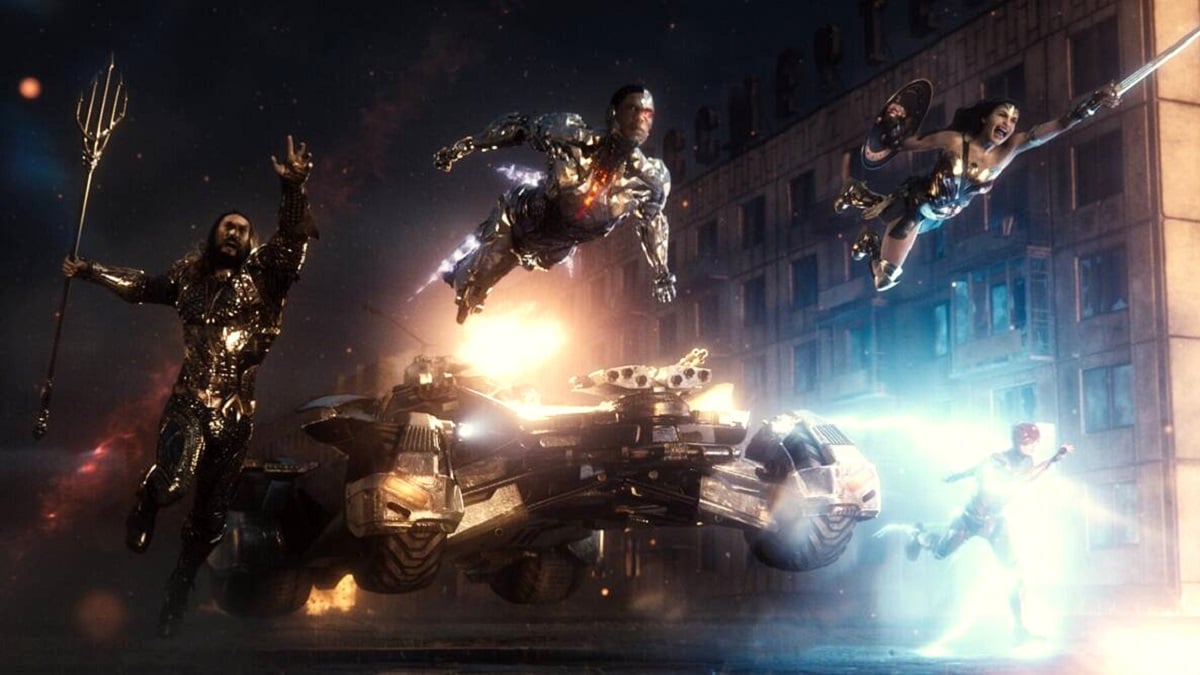
Zack Snyder’s Justice League is hero worship on a grand scale. Releasing to the formerly named HBO Max as a four-hour experience, the film has more freedom to tell an epic story at its own pace. Although Snyder stans were eager to see their hero’s full artistic vision, the rest of us were dreading an entire afternoon and evening of navel-gazing about Mother Boxes and Parademons; however, what we found was a refreshingly balanced narrative that takes the necessary time to give each hero their own journey — and offered some epic visuals along the way.
The main issue here is all the extra exposition about the Anti-Life Equation. Just like Man of Steel’s codex, Anti-Life is completely unnecessary to the story, as background baddie Darkseid already has a reason to hate Earth after his defeat here a millennia ago. Snyder could easily strip away all of that and have an even roomier canvas to dig into his heroes, but thankfully the lore dumps always come with a heaping dose of killer visuals.
It’s truly amazing how much better calibrated as a team-building narrative this is than the theatrical cut, with The Flash and Cyborg benefitting most from the extra runtime. People complain about the length, but the movie is literally broken into sections: Watch it as a miniseries like the rest of us. The epilogue is too much, as it belabors a narrative we’ll never get to see. But the real ending of the movie is our heroes standing together watching the sunrise, victorious as a team for the first time. Nobody shoots the hero pose like Snyder.
2. Wonder Woman (2017)
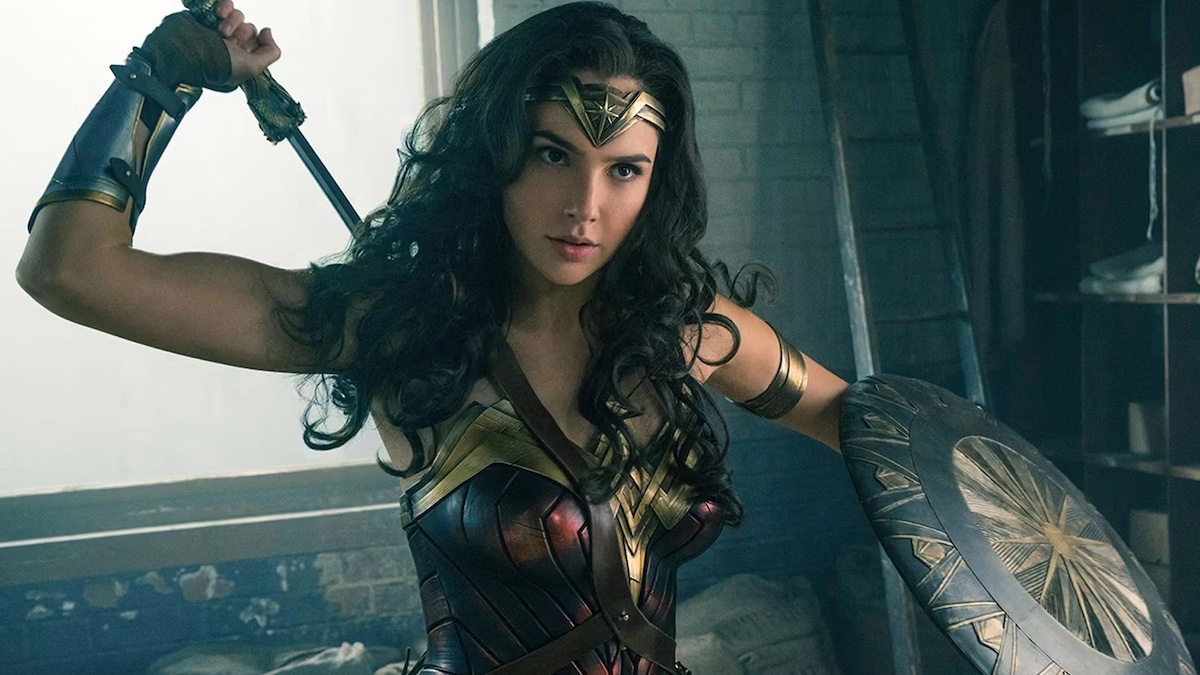
Years after its release, Patty Jenkin’s original Wonder Woman is still a high-water mark of the DCEU and a shining example of what DC can achieve that Marvel doesn’t have the courage to: honest sentiment that’s unobscured by pithy comic relief (a cinematic crutch if ever there were one). Gal Gadot shines in what is still her best performance in the role, likely because her fish-out-of-water story brings Diana’s vulnerability to the fore instead of her god-like powers. Her love story with Steve (a winning Chris Pine) is played patiently and honestly, which makes the terrific action scenes all the more bracing when they kick in. Jenkins shows a knack for gorgeous choreography that speed-ramps just enough to convey how hard Diana can hit when she has to.
The finale does suffocate under third-act conventionality, and Diana’s epic run through No Man’s Land is a little tone-deaf given that German soldiers in WWI weren’t the exaggerated villains they became two decades later. But the flaws are few and far between here. How refreshing to have a character risk audience scorn and talk unironically about love in the final moments of a superhero movie. In a way, Wonder Woman has always been in lockstep with her own heart — in this film, they both soar.
1. The Suicide Squad (2021)
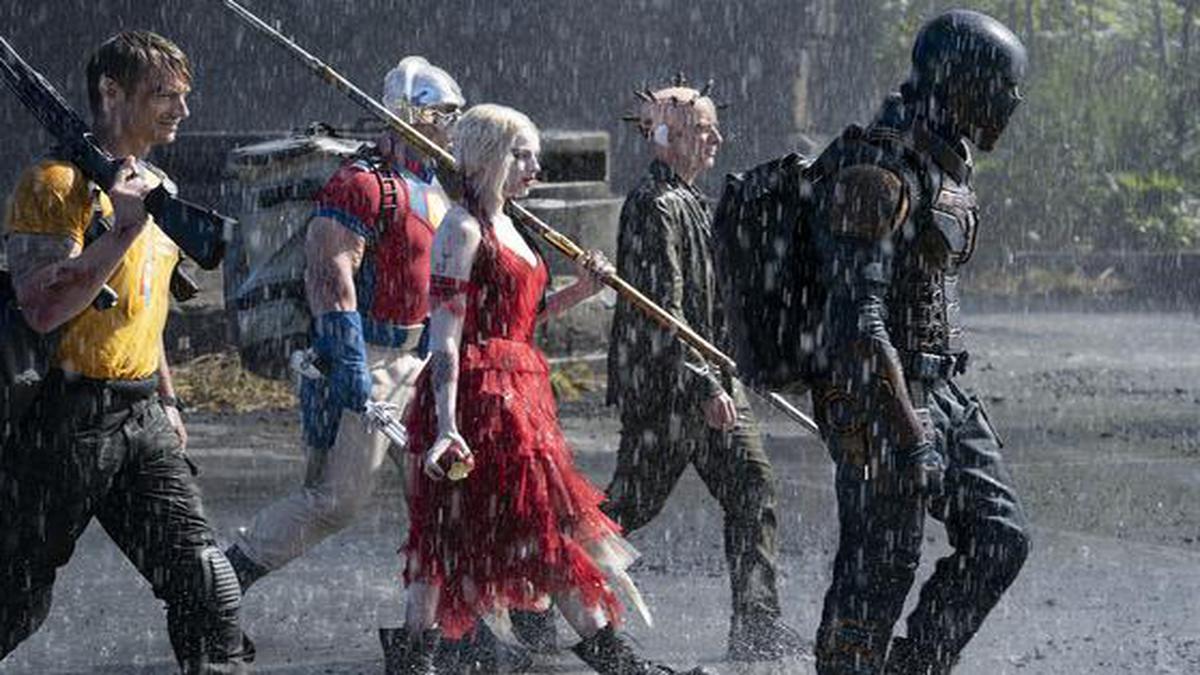
James Gunn’s The Suicide Squad is essentially the movie everyone wanted when the first Suicide Squad was released back in 2016. This one actually delivers on the two pledges of the title: the absolute expendability of the team, and a believable arc of antisocial monsters learning to work together for the common good. It’s not a perfect script; there are a few plot cheats, and a some of the jokes feel try-hard. Plus, for a film so critical of US machinations on foreign soil, Gunn is a little too gleeful about slaughtering hosts of Latin Americans onscreen. But as a throwback Sturges-meets-Peckinpah-meets-’90s cartoon, it’s pretty damn good.
All the characters get a moment to shine, the group’s in-fighting is actual conflict instead of lazy misunderstandings, and the narrative throws a haymaker to ferocious entitlement that comes from being mistreated — by your government, your partners, yourself. Performances are great across the board. The soundtrack rules (from The Jim Carroll Band to the Decemberists in one move?!). And there’s a shark who walks on two legs, rips people in half, and learns the value of friendship. Gun to our head, this is the best DCEU film.
As we’ve widely reported, James Gunn is now co-head of DC Studios and is planning a new slate of films with reskinned heroes, beginning with his own Superman: Legacy in 2025. But just because Gunn made our favorite movie in the last batch doesn’t mean we’re convinced he’s the guy to lead DC to the box office success and critical adoration it’s been aiming for since Man of Steel.
After all, The Suicide Squad is about a gang of misfits, which is Gunn’s comfort zone. While we’re certainly not betting against him, Gunn will need to flex an entirely new set of muscles to reinvent Superman and Lois.
We wish the best for the New DCU and hope it can at least maintain the label’s reputation as the bad boy comics franchise on the block, where even the failures are memorable.

